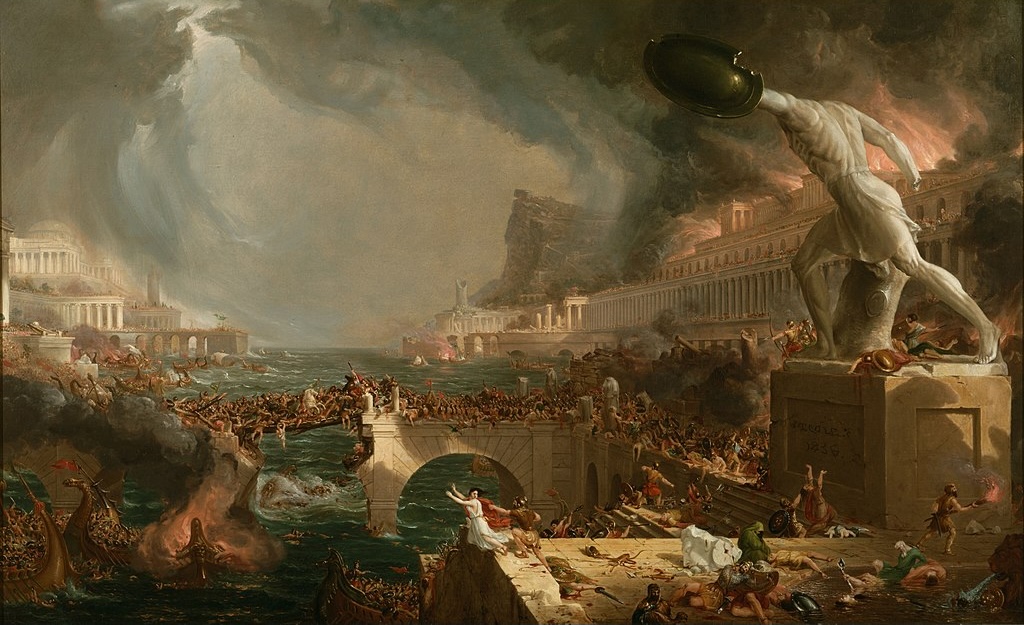The real purpose of History

I find it incredible that presidential debates used to be 7 hours long:
On October 16, 1854, in Peoria, Illinois, Douglas delivered a three-hour address to which Lincoln, by agreement, was to respond. When Lincoln’s turn came, he reminded the audience that it was already 5 p.m., that he would probably require as much time as Douglas and that Douglas was still scheduled for a rebuttal. He proposed, therefore, that the audience go home, have dinner, and return refreshed for four more hours of talk. The audience amiably agreed, and matters proceeded as Lincoln had outlined.
Is there any audience of Americans today who could endure seven hours of talk? or five? or three? Especially without pictures of any kind?
Who are these people? They seem otherworldly, almost superhuman in their ability to endlessly listen to complex political arguments. But 1854 was less than 200 years ago, a blink of an eye on historical timescales.
The people who sat patiently listening to the Lincoln–Douglas debates were the same as you and I. They looked like us, talked like us, inhabited the same brains, ate the same animals and plants, and pledged allegiance to the same country. But somehow they had different values and thought very differently about the world.
Today a plane ticket to experience the culture of another country is as affordable as ever, but the ultimate form of travel is time travel: going to the past and visiting a culture that can’t be photographed and shared on Instagram.
History is not about memorizing facts or events that happened. It’s not even about understanding our place in the world and how our world came to be.
The real purpose of history is to try to understand why people behaved the way they did, to help us make better decisions and live a better life today.
What were the assumptions and evidence available to those in the past? What ideas were important to their decisions? What’s different about the assumptions we have today?
We talk about history as if it proceeds in a series of events, but this is misleading—it’s not the outcomes that matter, but the decisions that led to those outcomes. People in the past did not know the final outcomes, only the context they lived in and the actions they took as a result.
Today’s news looks like it “just happened”, but newspapers don’t explain why it happened or what factors most influenced people to act the way that they did.
The Pirahas’ view that children are equal citizens of society means that there is no prohibition that applies to children but does not equally apply to adults and vice versa…. They have to decide for themselves to do or not to do what their society expects of them.
Here is an incident observed by Daniel Everett among the Piraha Indians: “We noticed that a [Piraha] toddler about two years old was sitting in the hut behind the man we were interviewing. The child was playing with a sharp kitchen knife, about nine inches in length. He was swinging the knife blade around him, often coming close to his eyes, his chest, his arm, and other body parts one would not like to slice off or perforate. What really got our attention, though, was that when he dropped the knife, his mother—talking to someone else—reached back nonchalantly without interrupting her conversation, picked up the knife, and handed it back to the toddler. No one told him not to cut himself or hurt himself with the knife. And he didn’t, but I have seen other Piraha children cut themselves severely with knives.”
I love examples like this because it opens my mind to consider questions I hadn’t even thought to ask. Even an idea seemingly as basic as “children shouldn’t be allowed to play with knives” is not a human universal—not across cultures, and not across time.
Of course, not everything from the past is good, and there are plenty of outdated ideas that we’ve discarded for good reasons. But I’m free to pick and choose the best parts of the past to carry with me, and cherish the unique set of circumstances that led to the present.
Reading history is rewarding to me for the same reason I love to travel: it challenges me to learn from a culture different from my own and expand my worldview. It gets me into the habit of questioning my assumptions and helps me think more creatively. It stretches me to maintain an open mind and stay curious about the world.
What are some decisions you will make differently today, if you learned how those decisions were made by people in the past?
I only publish half of my writing publicly. You can read the rest of my essays on my private email list:
Subscribing is free, no spam ever, and you can safely unsubscribe anytime
Image credit: Thomas Cole